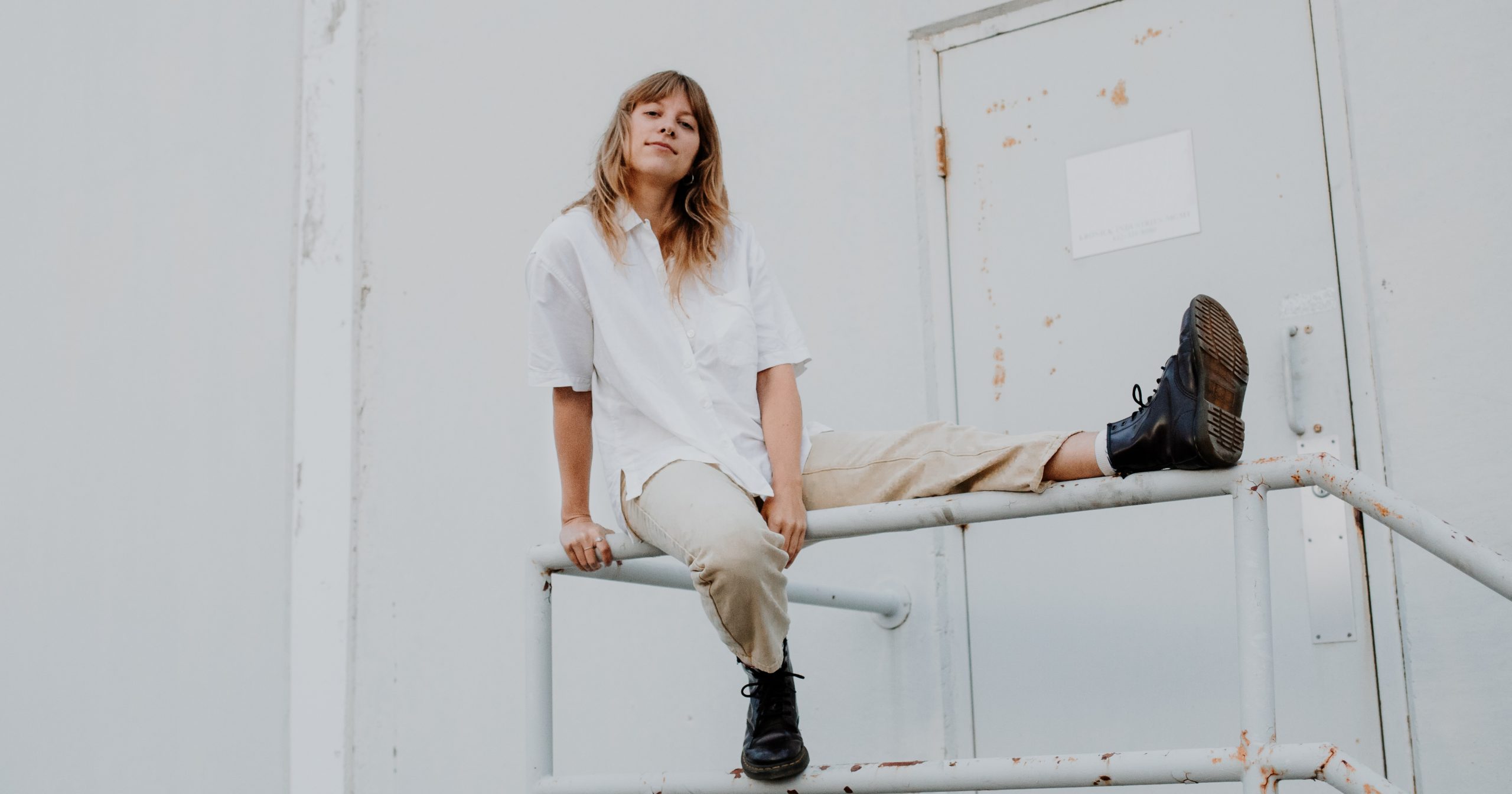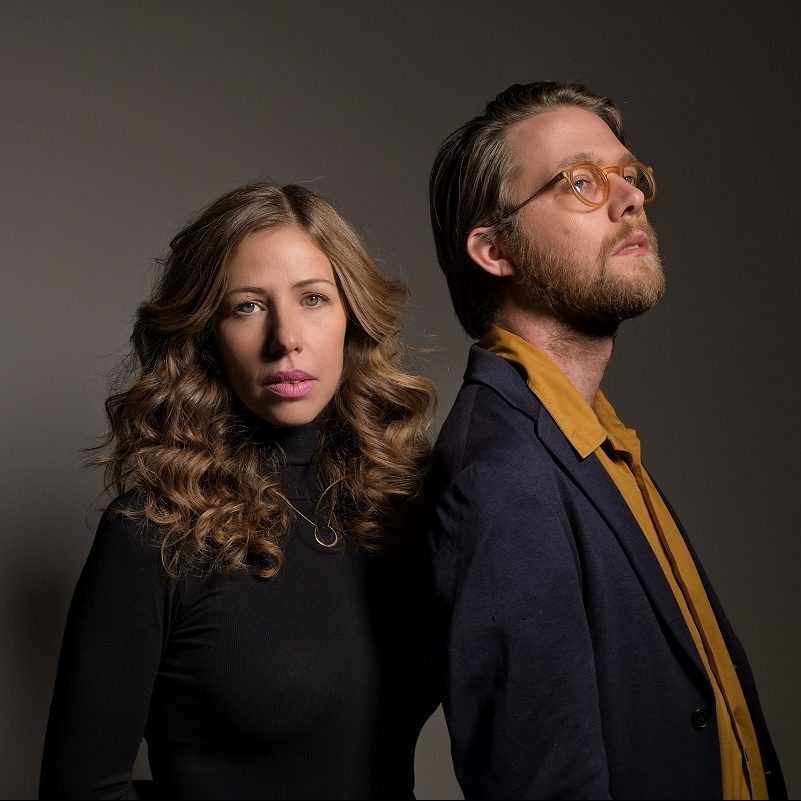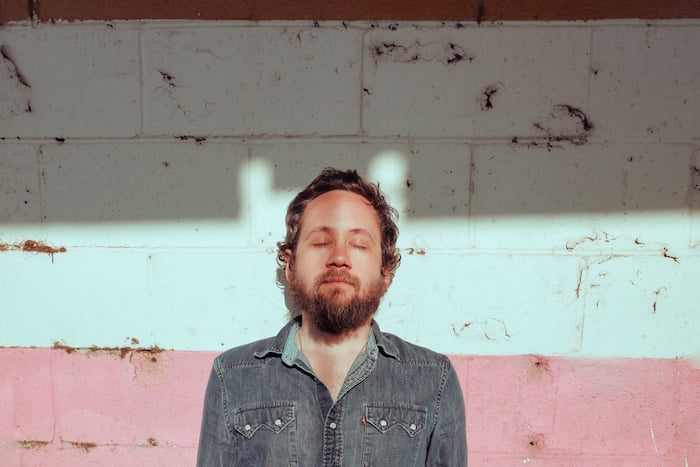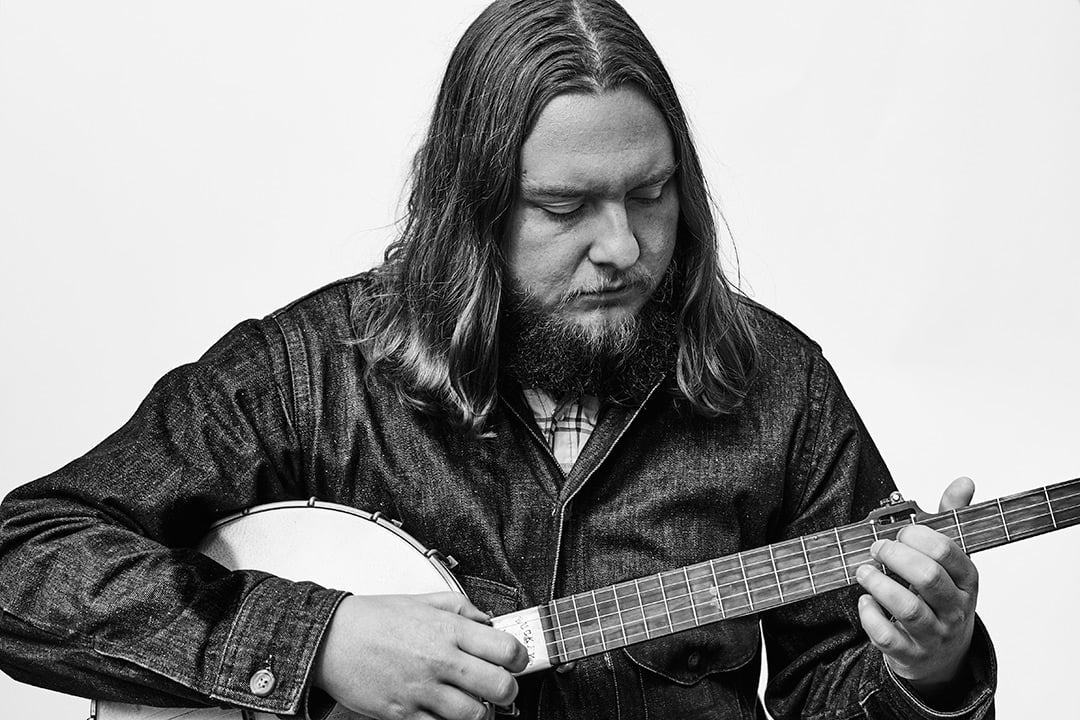When I first heard Right On, the new album from Humbird, (the moniker for Minnesota-based singer-songwriter Siri Undlin), I thought immediately of Jason Molina and Magnolia Electric Co. There’s an emotional rawness in the production paired with a choral background vocal style on songs like “Fast Food” that reflects a Midwestern landscape to my ears. Imagine a million ears of corn singing to nobody in the blazing heat of summer, right beside a sprawling concrete strip mall.
“Quilted miles of iron and wheat / does it count, if it just repeats?” Undlin sings.
I had the privilege of talking to Undlin over the phone about her new album, while she was at home in Minnesota and I was in a parking lot outside of a Barnes & Noble somewhere in Maryland. The first thing I asked was if she was familiar with Molina’s work, and much to my surprise, she was not. So, I will have to assume that what I heard as historical reference is merely a shared landscape of influence and delicious, melancholy songwriting.
Throughout her new album Right On, Humbird explores the human desire to retreat into ease, safety, and ignorance, rather than put oneself at risk of being wrong. Undlin begins this exploration with the experience of heartbreak, but quickly zooms out to include topics of cultural conflict, destruction of natural ecosystems, societal priorities, and gun violence. All the while, these songs ask us not to know the answers, but to merely be willing to ask the questions.
On “Child of Violence,”she sings: “I could be a break in the chain / you could be a break in the chain / you could be a piece of the change / When you talk about it call it by it’s name…”
I have been a fan of Humbird ever since I saw her performance at the Mile of Music Festival in Appleton, Wisconsin, this past summer and I was thrilled to get to interview her about this album.
Central to this record is a kind of celebration of being wrong. Can you speak to the specific benefits of being wrong and what being wrong means to you?
Siri Undlin: I find that there is a carefulness and reservedness, a real fear of being wrong, that often gets in the way of important conversations, and prevents people from trying to learn and do better. The reality is that sometimes you’re wrong, but you still have a responsibility to show up and be a part of things.
Ah, that makes sense. So on the title track you sing, “You might be dead wrong… at least you’re trying…” This particular song seems to be about a romantic relationship, but in a broader sense, is this about avoiding apathy?
Yes, it’s a central message of the album, and honestly I need to hear it as much as anyone. There is a time for resting and rejuvenating, but I think it’s important to be really honest with yourself about whether you are in that process, or whether you are making excuses because it’s hard. You have to be able to get into the squishy middle of things and really dig in.
I’m from Minnesota and in the wake of George Floyd’s murder, which I have written about explicitly on other records, I’ve had to realize how slow change can be. You have that initial communal outrage, but then what happens a year later? What happens two years later?
Whether its a global event or personal event, I’ve done a lot of growing up and I can’t just ignore these things. It’s a kind of rugged realism that comes with this greater knowledge, which can be really beautiful, but there’s a reframing that just has to happen.
When you talk about rugged realism, it makes me think of your song “Cornfields and Road Kill,” which is one of my favorites on the album.
That is my favorite song to play live and has been for years. I just think it’s one of the more honest songs I’ve ever written. I was able to capture a lot of what I feel about the landscapes where I’m from and the complexities and subtle beauty of it.
There’s so many road songs, but there’s very few songs written about the landscapes of the Midwest; roadkill and monocrops, soy and corn, and animals that are dead is the reality of traveling and the landscape and the economy of the area. It’s this visual representation of the choices that we’ve made about culture and society.
I was just mad about that when I wrote that song. I wrote it as a connecting tool and a bridge rather than just rage… but it is also just fun to be loud and turn up the amps and be cathartic…
I feel like the Midwest is having a real artistic moment right now with Waxahatchee/Plains and Kevin Morby, how do you think the Midwest and specifically Minnesota influence your work?
It’s tricky, because it’s such a subtly nuanced place in a lot of ways. It’s home, first and foremost, which is an endless topic of analysis. But creatively, I do feel really inspired by the landscape of the prairie, because of its subtleties. It’s a landscape you really have to sit with and pay attention to in order to understand it. You have to really slow down. I also think there’s a lot of space for a creative community, which is really exciting when you take into account income inequalities and the densities of the larger cities. There’s space here to collaborate and there’s not really the infrastructure that super ambitious people are interested in, so they move away… I think it was Prince who said that “The cold keeps the shitty people away!” [Laughs]
I am blown away by the production on this record, you worked with Shane Leonard who is another artist heavily rooted in the Midwest. What was the process like working with him, and what did that collaboration bring to the project?
Shane is a dear pal who I have recorded with before, so we have an established workflow. I, along with two of my bandmates, had been playing these songs live for a couple years on tour by the time we went to record, so going into it we were aiming to capture the live feeling of these songs, very much trying for the sound of a band in a room.
In approaching the record, I thought, let’s just go and hang with Shane and record live to tape and try to capture that energy. Because we do tackle heavy and weighty topics, but at the end of the day we still have a blast playing together.
I loved recording to tape. Instead of going into it with infinite options it was like, “Here’s how we play it and just do your best.” That infused the whole process with some magic and adrenaline, and it was awesome.
Humbird is a pretty fluid project, there’s a cast and crew of folks who are always shifting based on people’s lives, but I made the record with Pete Quirsfeld (drums) and Pat Keen (bass) and the three of us have been playing together for six-ish years. So these are road worn and comfortable songs that were ready to be captured.
I read that you spent a year doing research as a Watson Fellow. I’m interested to hear about what you were studying and how that has influenced your own music?
Yeah, the Watson Fellowship is this insane opportunity you basically do research on a topic of your choosing for a year. In my case, I was comparing Celtic and Nordic traditions and their storytelling. Historically, so much happened via trade routes and conflict, particularly in the balladry tradition and saga tradition, you will find that similar motifs and melodies crop up across folklore traditions that are also so specific to certain places.
I spent a year shadowing storytellers and musicians, compiling this bank of folk tales and ballads. I was doing a lot of writing and researching and playing music already, but I didn’t actually know that making music could be a job. When I went and did this research and was shadowing all these folks who were essentially doing DIY touring, or playing or performing in community spaces, witnessing how they move through the world I realized, “Oh my god, you can do this?”
One person I spent a lot of time with is Brendan Begley, on the west coast of Ireland. The Begley family are these incredible musicians on the Dingle Peninsula. It was the first time I was exposed to a DIY arts culture… it was so mush part of the fabric of life there and when I came home I realized I want to make art this way, I don’t want to do it academically. I feel like often in the classroom you’re in the business of taking art apart and I wanted to actually create it.
Speaking of the ballad tradition, when I heard your song “Ghost on the Porch,” it sounded like a brilliant remake of an old ballad a la Sam Amidon, but in this case it is actually an original song. I find your songwriting to be more through-composed in a storytelling way than a typical commercial song might be. Do you draw on that ballad tradition in a conscious way or do you hear that influence?
That is actually a song that started as a short story, a fairy tale of sorts. I love to write fiction and non-fiction and it generally happens on a Humbird record that one or two songs per album are drawn from a short story or some other writing format. I’ll write out prose and then think, actually this could be a song.
Anytime you’re writing fiction your own life is in there, but I have not personally had the experience of a ghost of my own likeness standing on the porch telling me to run for my life, which would be terrifying.
Sometimes with writing, it’s almost like dreaming, where you don’t know where things come from!
Photo Credit: Juliet Farmer



